463 Search Results for autism
April 19, 2013
by Carole Zangari -
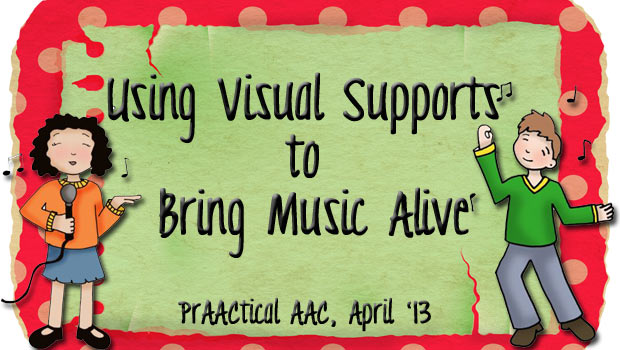
When I first met our guest blogger almost 20 years ago, she was using more visual supports in her music therapy sessions with kids who had ASD than most SLPs were using in their language therapy. Marlene Sotelo has worn many hats in her professional life, but her passion for helping people with ASD communicate more effectively seems to have permeated all of them. In this post, she discusses some of the ways she uses visual supports to help make music therapy effective. Music is a powerful force that transcends time, cultures, and languages. It can transport you to the past, and bring you hope and excitement for the future. In addition, music can be an effective tool in teaching children with varying abilities. The predictability, rhythmic patterns, and repetitive nature of the structure music lends itself to the development of language, cognitive skills, and motor skills, especially for individuals... [Read More...]
April 11, 2013
by Carole Zangari -
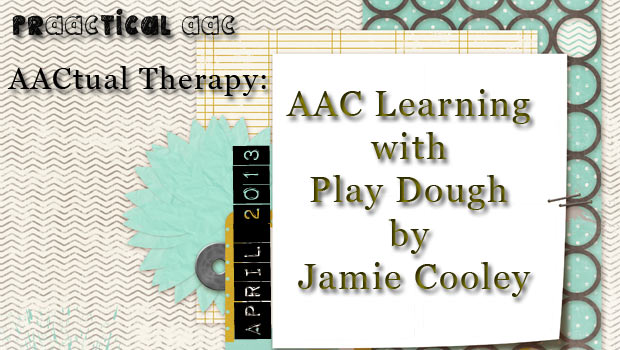
Today, we’re happy to introduce you to another AACtual Therapist, Jamie Cooley, the SLP for Belpre City Schools (belpre.k12.oh.us), located in Belpre, OH. She is a graduate of Ohio University (B.S. ’09, M.A. ’11) and currently resides in Athens, OH. Jamie did work at Ohio University focusing on AAC and children with autism under the instruction of Dr. John McCarthy and Dr. Joann Benigno. She has worked for Belpre City Schools for two years with students in grades K-12. In this post, Jamie uses a case study approach to share a lesson using Play Dough. Background Emma is a third grade student. She was born with hypoplastic left heart syndrome, and her cognitive and communication skills are significantly below age-norms. She receives most of her academic instruction in a resource room. Communicatively, Emma repeats many words and phrases, and combines up to two words on her own. This is... [Read More...]
April 9, 2013
by Robin Parker -
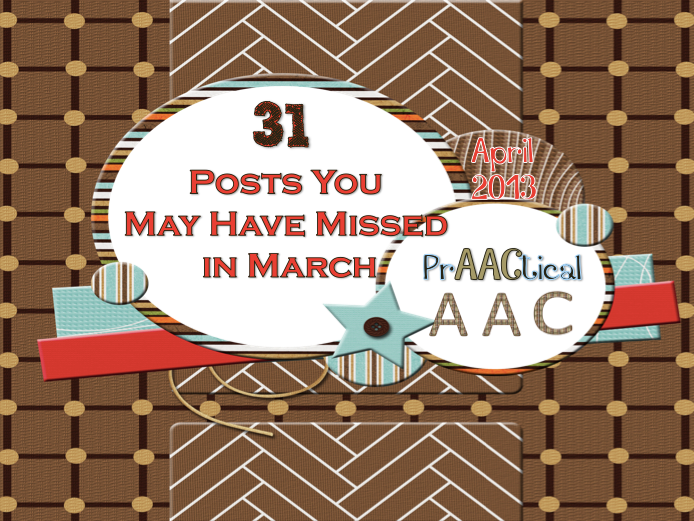
Strategy of The Month Narrative Skills for People with AAC Needs PrAACtical AAC & Personal Narratives Narrative Assessment & People Who Use AAC Let Me Tell You Something: Narratives for the Beginning Communicator Helping People with AAC Needs Develop Personal Narratives PrAACtical Thinking PrAACtical Guessing: 5 APPs for Interactive Inferencing Another Look at Vocabulary Instruction in AAC Magic Moments in Building Vocabulary with ‘Its Cool to be Clever’ It’s PrAACtically Saint Patrick’s Day 28 Posts You May Have Missed in February 10 AAC Things To Do for PrAACtically Free in 10 Minutes of Less Daylight Savings Time & PrAACtical Behavior Another Look At Language Facilitation Strategies to Make AAC Learning Effective Literacy, AT, & Students with Significant Disabilities Watch This: Planning with Strategies Worth Repeating: Big Ideas in Teaching AAC Vocabulary PrAACtical Passover & Easter Supports 30 Things to do During Autism Awareness Month A Beautiful Family, But 1 Question... [Read More...]
April 7, 2013
by Carole Zangari -
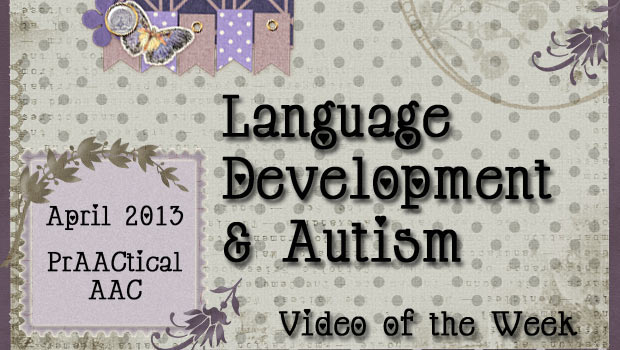
There is no better time than Autism Awareness Month to reflect on the communication services that we provide to children and adults with ASD. Today’s post features Dr. Rhea Paul, Director of the Communication Disorders Section at the Yale Child Study Center. In this recorded presentation, Dr. Paul provides a thorough overview of communication development in people with autism.
April 5, 2013
by Robin Parker -
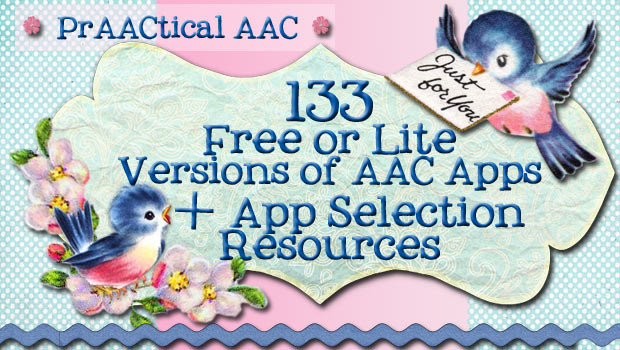
Here is our most recent update of free and lite versions of AAC apps for iOS and Android platform devices + a variety of resources related to AAC app selection. We strongly continue to advocate for a systematic process for AAC app selection. We recommend AAC app decision making in the context of a feature match process that gives appropriate attention to the full range of AAC options. Tools to Use In Making Decisions About AAC Apps Feature match form developed by Jessica Gosnell at Boston Children’s Hospital Feature match checklist created by Scott Marfilius and Kelly Fonner Our supplemental rubric covering language and communication features, RELAAACs Places to Go to Find AAC Apps and Reviews Comprehensive AAC app list for iPhone and iPad by Jane Farrall AAC Tech Connect’s Apps Assistant OCALI’s listing of apps for individuals with ASD Tech in Special Education Aidis Trust Communication App Reviews Training... [Read More...]
April 3, 2013
by Robin Parker -
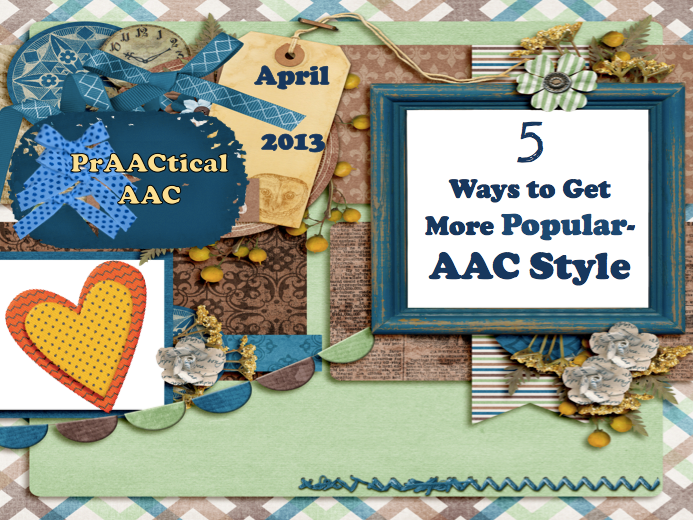
Popularity may or may not be important to children or adults, but most of us would like to have some friends and at least some people we can share information with. From a facilitator’s point of view, we need AAC users to have conversations with a variety of people. The more prAACtice in conversational exchanges the better. We have learned (through research and clinical experience) that if we teach specific skills, communication partners are more likely to initiate and respond to AAC communication. Here are things to teach for ‘conversational’ popularity 1. Teach Partner Focused Questions What’s up? How are you doing? How is your family? How are you feeling? What are you thinking? 2. Teach Social/Participation Scripts Attention Getters Starters Maintainers Turn Transfers Closings Let’s talk. Guess what? And next.. What’s your thoughts? That’s it. Come here. Let me tell you something. want a hint? Amazing right? See you later.... [Read More...]
March 27, 2013
by Robin Parker -
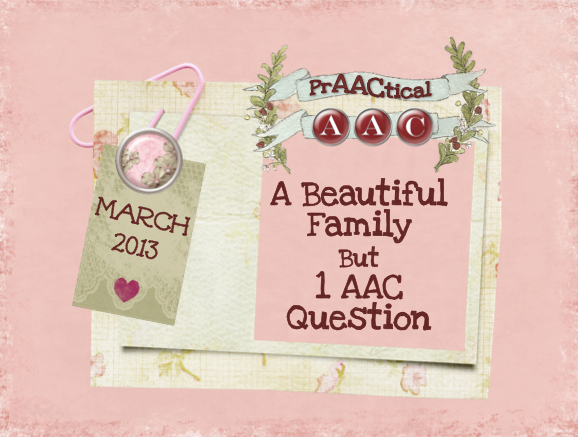
A family, a sibling, and autism. A positive message from a loving family who is doing an amazing job spreading the autism acceptance message. Loved watching this, but we just have 1 question- why no AAC? Seems like there would be so many options. We continue to need to spread the AAC word…
March 25, 2013
by Robin Parker -
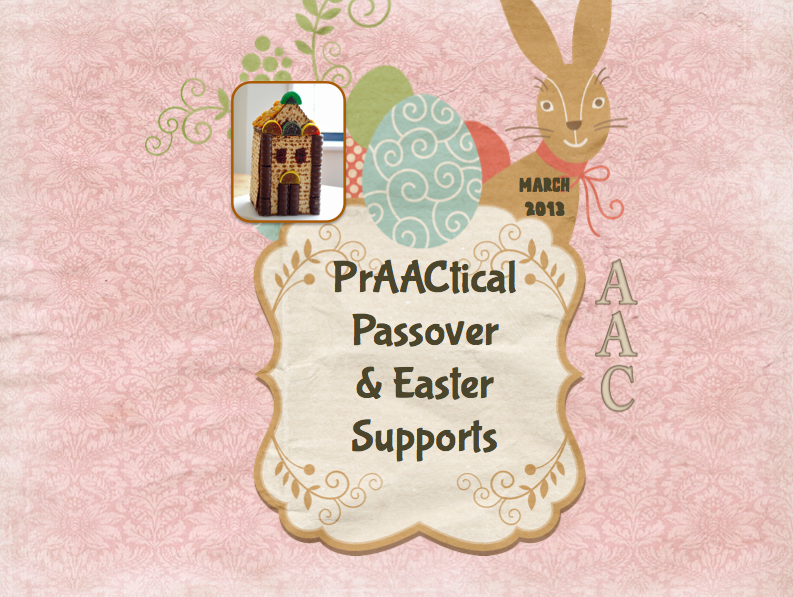
Happy Passover & Easter to those who celebrate! There are some great free visual supports to help ALL children participate in the holiday routines. We are thankful to Gateways Access to Jewish Educationand Positively Autism– Daily Autism Freebie for making these readily available. Whether you use them for your students, clients, family, or guests, we hope everyone has a wonderful holiday and everyone is included. Passover The Seder Order, The Ten Plagues, Passover Social Stories, Passover Prayers, Passover Songs, Passover File Folder Activities Easter Going to Church on Easter Travis the Train Goes on an Easter Egg Hunt Decorating Easter Eggs Going on an Easter Egg Hunt Easter Vocabulary Easter Songs (scroll to the bottom of the page for the videos)
March 15, 2013
by Robin Parker -
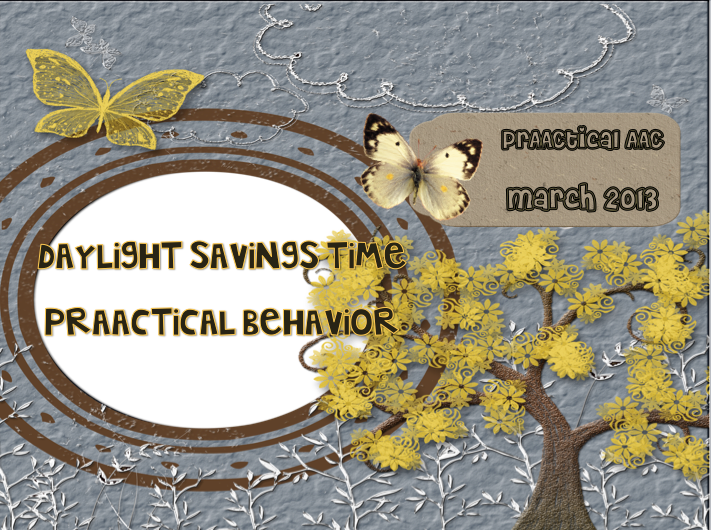
We have noticed that daylight savings time has been difficult for some of the learners that we know (for more about this see Karla Fisher’s ASD page). Sleep patterns seem to have been out of whack which in turn may lead to some re-emergence of behaviors that may pose challenges in speech-language sessions. However, instead of getting frustrated, this is the time to get more organized, teach more high priority communication (“need an extra break today”), and in some ways be more flexible. Be prepared to use the visual supports that keep learners focused, highly interested, and organized. By staying with the basics, there will be no need to sacrifice in AAC & language learning time. Remember to Use: Choice Boards– Give lots of choices. When we choose what we do, we are more likely to be interested and participatory. The session goals can remain the same but a... [Read More...]
March 2, 2013
by Carole Zangari -
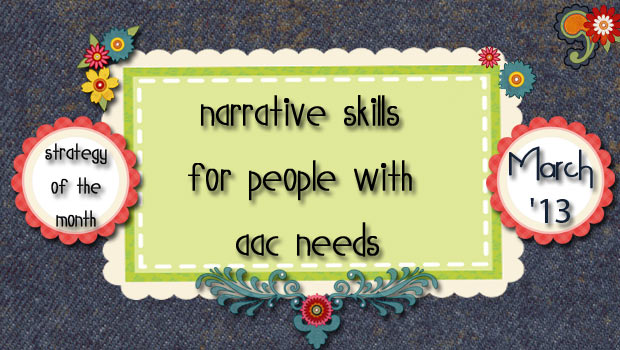
This month, we’ll share some thoughts about helping people with AAC needs develop narrative skills. Why narrative skills? Because they help us connect to one another and communication learning works best when we feel connected. Among other things, storytelling helps us relate to one another. Narrative language is important for reading and writing skills to develop. It helps us understand the world and ourselves. In telling our stories, we establish our identities. Plus, it’s part of what makes life fun. In the US, pediatric therapists are having lots of conversations about the Common Core State Standards (CCSS) in English Language Arts (ELA), and how they relate to the IEP goals of the students that they serve. Many of the goals in the ELA speaking domain require students to be able to summarize what they hear and read, so it is no surprise that SLPs are prioritizing narrative language and related... [Read More...]









